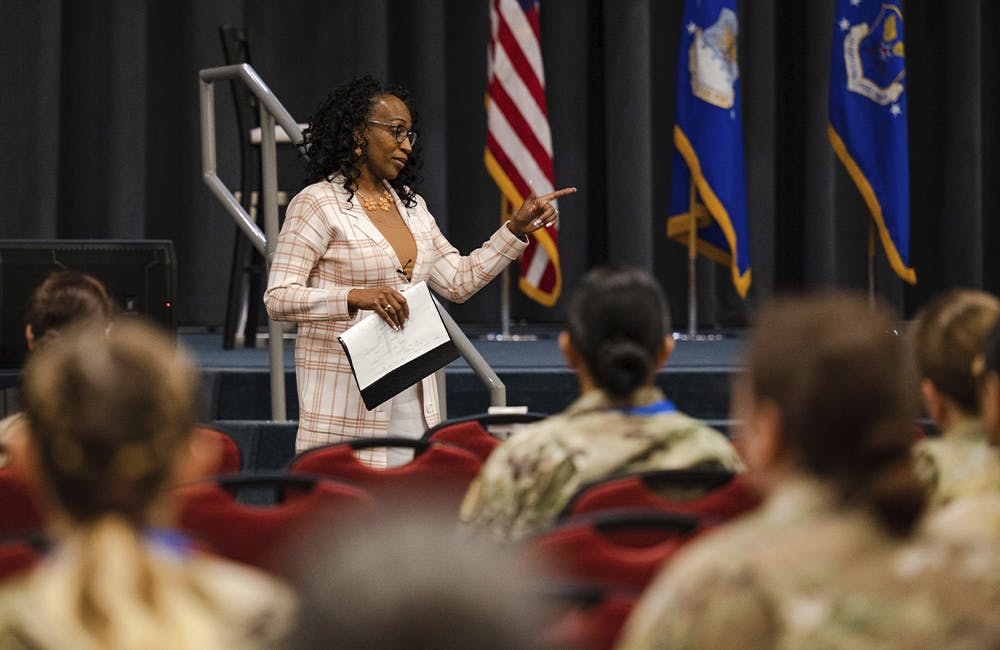Federal AI Initiative Focus in White House Summit
Federal leaders hope AI use cases will spur innovation across government.

A presidential mandate hopes to ramp up adoption of artificial intelligence to improve services across federal government, and a White House event spurred discussion in the technology this week.
Over 175 thought leaders and experts from industry, academia and government gathered at the White House’s AI Summit Monday to discuss federal AI adoption and current federal agency use cases involving the emerging technology.
The event follows months after President Donald Trump’s executive order, which subsequently launched the nation’s AI strategy that prioritizes federal agencies’ investments in artificial intelligence.
The American AI Initiative named five key areas crucial to successful AI implementation at federal agencies: to promote investments in research and development; make federal data, models and computing resources open and accessible to the public; establish governance standards with the adage of National Institute of Standards and Technology technical standards; AI workforce development and reskilling through training, STEM education programs and other learning opportunities; and create federal agency action plans that support innovation in AI.
“Under this strategy, we are completely committed to further developing our AI capabilities and making each new advance serve the best interests of the American people,” said Federal Chief Technology Officer Michael Kratsios at the event.
The National Health Institute’s Library of National Medicine highlighted a use case for the technology to automate indexing medical citations, according to Director Patricia Flatley Brennan. Similarly, the Department of Health and Human Services is parsing data with a natural language processing pilot, though with the opposite intent: to use AI to “deregulate.”
With the tool, HHS is finding outdated, unedited regulations that may be burdensome or irrelevant to the health-agency, HHS Associate Deputy Secretary Charles Keckler said. By parsing through those regulations, it can eliminate or update HHS regulations and streamline the HHS regulatory environment, he added.
Lieutenant General Jack Shanahan also shared that the Defense Department’s Joint AI Center is cultivating its AI-enabled capabilities for humanitarian detection and monitoring assistance, ranging from tracking wildfires to analyzing flood and road conditions to providing infrastructure damage assessments.
“We will continue to develop new AI technologies in a way that advances innovation, promotes public trust, protects civil liberties and remains consistent with our common principles,” Kratsios said. “We have so much potential to use AI in a way that reduces costs, improves quality of services, empowers people, and increases efficiency.”
This is a carousel with manually rotating slides. Use Next and Previous buttons to navigate or jump to a slide with the slide dots
-

Trump's HHS Secretary Pick Eyes Transparency, Data Access
Nominee Robert Kennedy wants to improve transparency and data access to empower patients and enable innovation in health care technology.
4m read -

Federal Leaders Revamp Tech Workforce, Policy
Despite the rise in interest of emerging technology, federal leaders see data, policy and the workforce as a best vehicle for change.
4m read -

Looking Back at the First Trump Administration's Tech Priorities
In his first term, Donald Trump supported cybersecurity, space policy and artificial intelligence development.
4m read -

Labor CAIO Outlines Responsible and Ethical AI Priorities, Use Cases
Department of Labor Chief AI Officer Mangala Kuppa outlined how her role is shaping the agency’s artificial intelligence strategy.
20m watch







